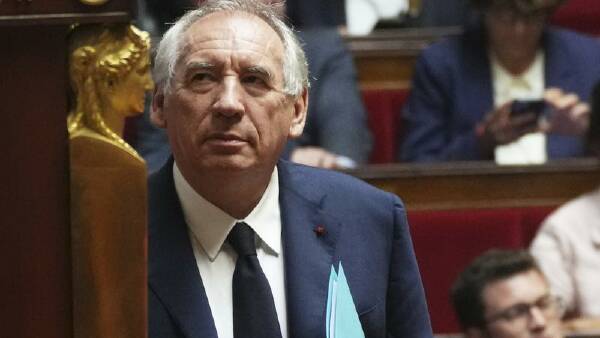
France’s parliament voted to oust Prime Minister François Bayrou on September 12, 2023, deepening a political crisis that has left President Emmanuel Macron searching for a new leader for the fifth time in less than two years. Bayrou, who took office just nine months ago, is now required to submit his resignation as the government grapples with rising national debt and a significant fiscal deficit.
The vote came as a surprise, with Bayrou attempting to garner support for his strategy aimed at reducing a deficit that is nearly double the European Union’s three percent ceiling. France’s national debt stands at a staggering 114 percent of its GDP, prompting Bayrou to propose savings of 44 billion euros (approximately $78 billion) in the upcoming budget. Opposition parties, however, showed little willingness to support these measures, particularly with a presidential election on the horizon in 2027.
Macron now faces a narrowing set of choices for his next prime minister. He could select someone from his centrist ruling party or opt for a conservative figure, but either option risks repeating a strategy that has not resulted in a stable government. Alternatively, he could consider a moderate socialist or a technocrat, but none of these scenarios is likely to secure a parliamentary majority.
Before the vote, Finance Minister Éric Lombard expressed concerns that the formation of a new government would dilute the already ambitious deficit reduction plans. Macron’s administration has thus far resisted calls from both the far-right National Rally and the far-left France Unbowed for a snap election to dissolve parliament again.
The new government’s immediate priority will be to pass a budget, a challenge Bayrou faced when he assumed office. “You have the power to bring down the government, but you do not have the power to erase reality,” Bayrou told members of parliament prior to the confidence vote. He warned that rising expenses and an already burdensome debt would continue to pose significant challenges for the government.
France’s European partners will be watching closely, as the country currently holds the highest deficit as a percentage of GDP in the eurozone. The cost of servicing its debt also exceeds that of Spain, and spreads against benchmark German 10-year bonds are climbing to their highest levels in four months. Fitch Ratings is set to review its AA- rating with a negative outlook, while Moody’s and S&P Global will follow suit in October and November. A downgrade could hinder France’s ability to secure funding at favorable interest rates, exacerbating its debt crisis.
Political and fiscal uncertainty may weaken Macron’s influence in Europe, particularly as the United States takes a firmer stance on trade and security issues and conflict continues in Ukraine. Sources close to Macron indicate that he believes a snap election would not resolve the current crisis and that discussions with the Socialists should be pursued.
The Socialists have proposed a counter-budget that includes a tax of at least two percent on personal wealth exceeding 100 million euros (approximately $178 million), aiming for savings of 22 billion euros (about $39 billion). This proposal could present challenges in aligning with Macron’s pro-business reform agenda.
On the ground, discontent may be brewing, with a grassroots movement named “Bloquons Tout” (“Let’s Block Everything”) calling for nationwide disruptions. Trade unions are also planning walkouts in the coming weeks, indicating that social unrest may accompany the political upheaval in France.







